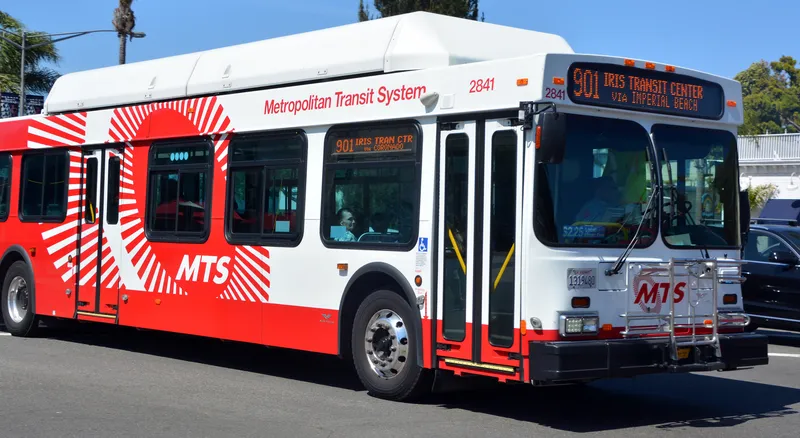
The San Diego Metropolitan Transit System (MTS) is to let passengers travel for free during September, when it launches its new Pronto fare collection system.
The MTS is moving the California city's fare system away from the Compass Card, which offers a one day and regional monthly pass, and can be used on buses, trollies and the Coaster and Sprinter rail services.
Pronto offers a pay-as-you-go service that deducts one-way fares from the user’s account. Riders can also add multiple cards to an account for a whole family or add money to it via the mobile app and website.
MTS is deploying Pronto cards as part of a plan to attract riders back to using its buses and trollies.
Nathan Fletcher, MTS board chair, says: "Providing free rides during the entire month of September to those who switch to Pronto accounts is a good way for riders to familiarise themselves with the new system and get the new Pronto cards into their hands.”
"This board of directors is committed to making transit in San Diego more convenient; and this new system will help increase accessibility to our trollies and buses,” Fletcher continues.
“Riders who participate in the free ride programme this September will quickly realise the new system is easy to use and convenient, making for a better user experience."
The MTS says ridership on its buses and trolleys has been slowly increasing since it hit a low point in April 2020 at the height of the pandemic-induced Stay at Home order.
The agency reveals it is currently carrying approximately 134,000 passenger trips per weekday - approximately 50% of pre-pandemic levels.
In August, the MTS is planning what it calls an “aggressive campaign” to make it easy for riders to transition.
MTS CEO Sharon Cooney says: "It will be a big effort to transition hundreds of thousands of people to Pronto. But offering riders with a free Pronto card and free rides during the launch is a great incentive.”
“Once they start using Pronto regularly, riders will quickly realise how much better and easier the experience is, and they will also see some of the other exciting enhancements we have waiting for them."
Passengers can register for the Pronto e-newsletter or contact the Pronto call centre to be notified when the online application sign-up period begins. The MTS will post cards to those who complete the online application.
The agency will also conduct more than 50 outreach events at transit centres giving away Pronto cards, helping riders download the app and setting up accounts to aid the transition.
The mobile app will be available to download from September.









